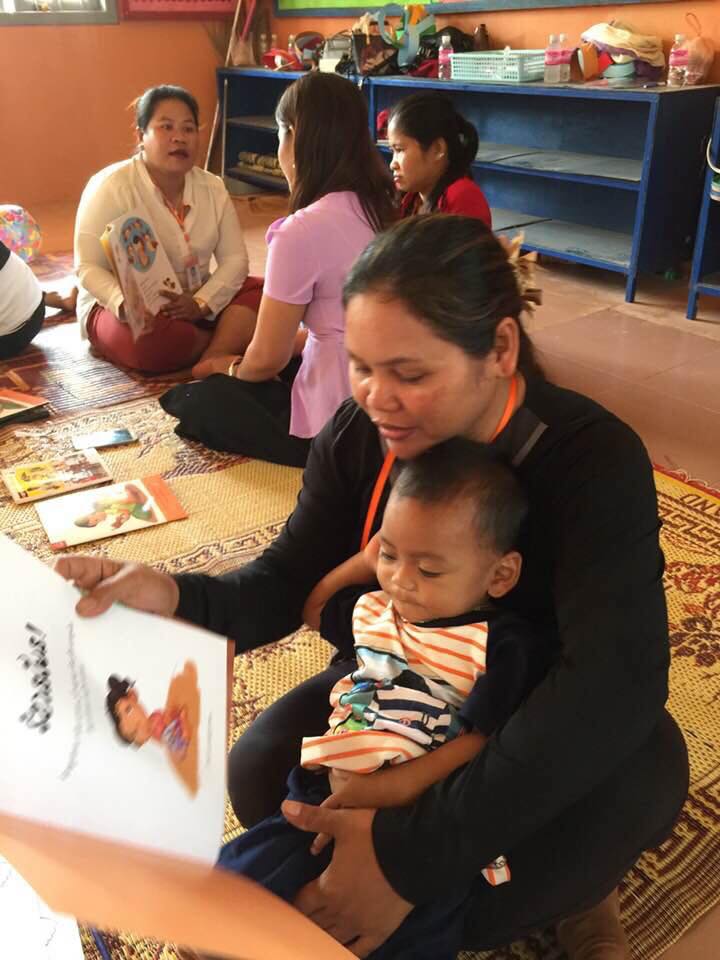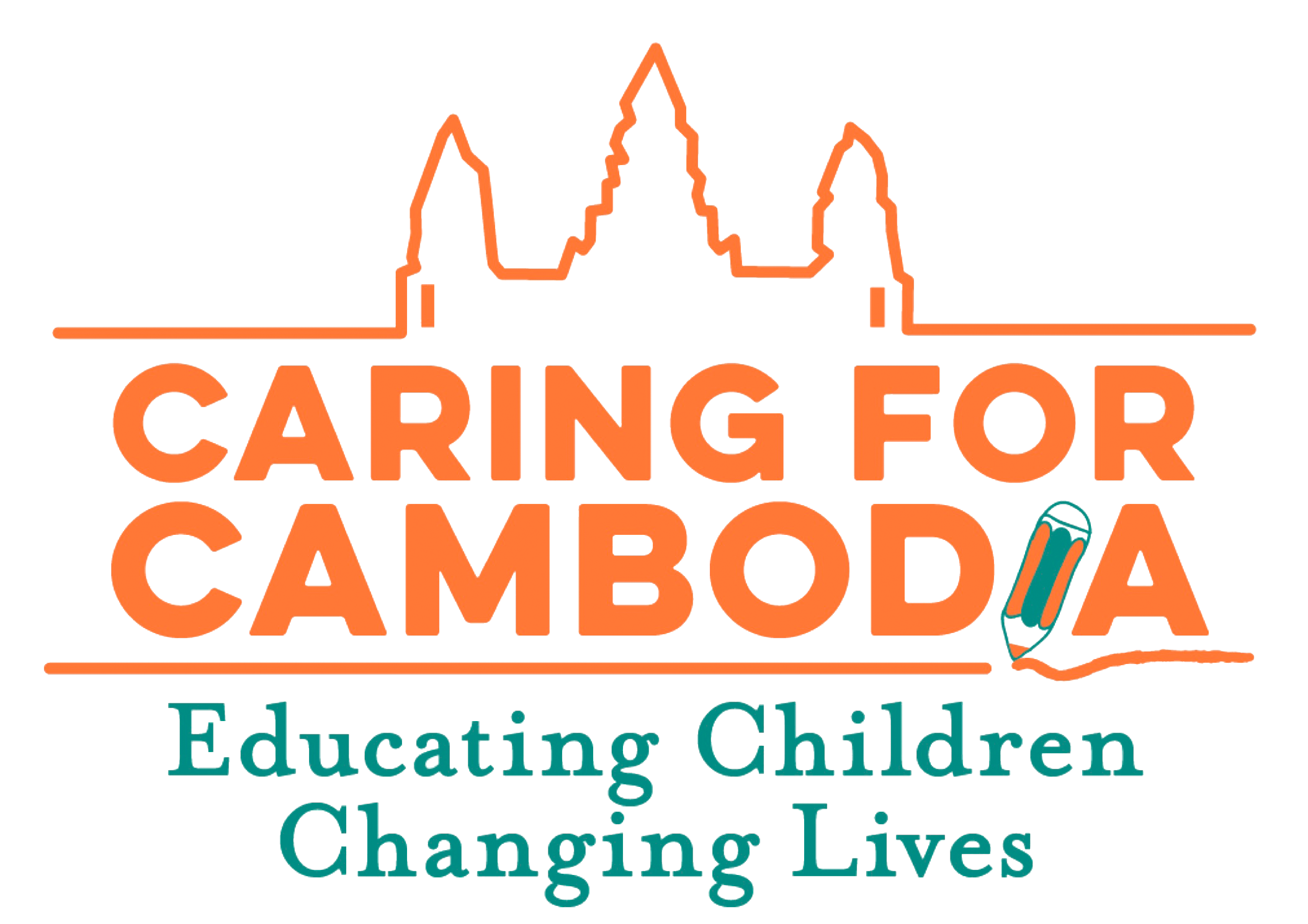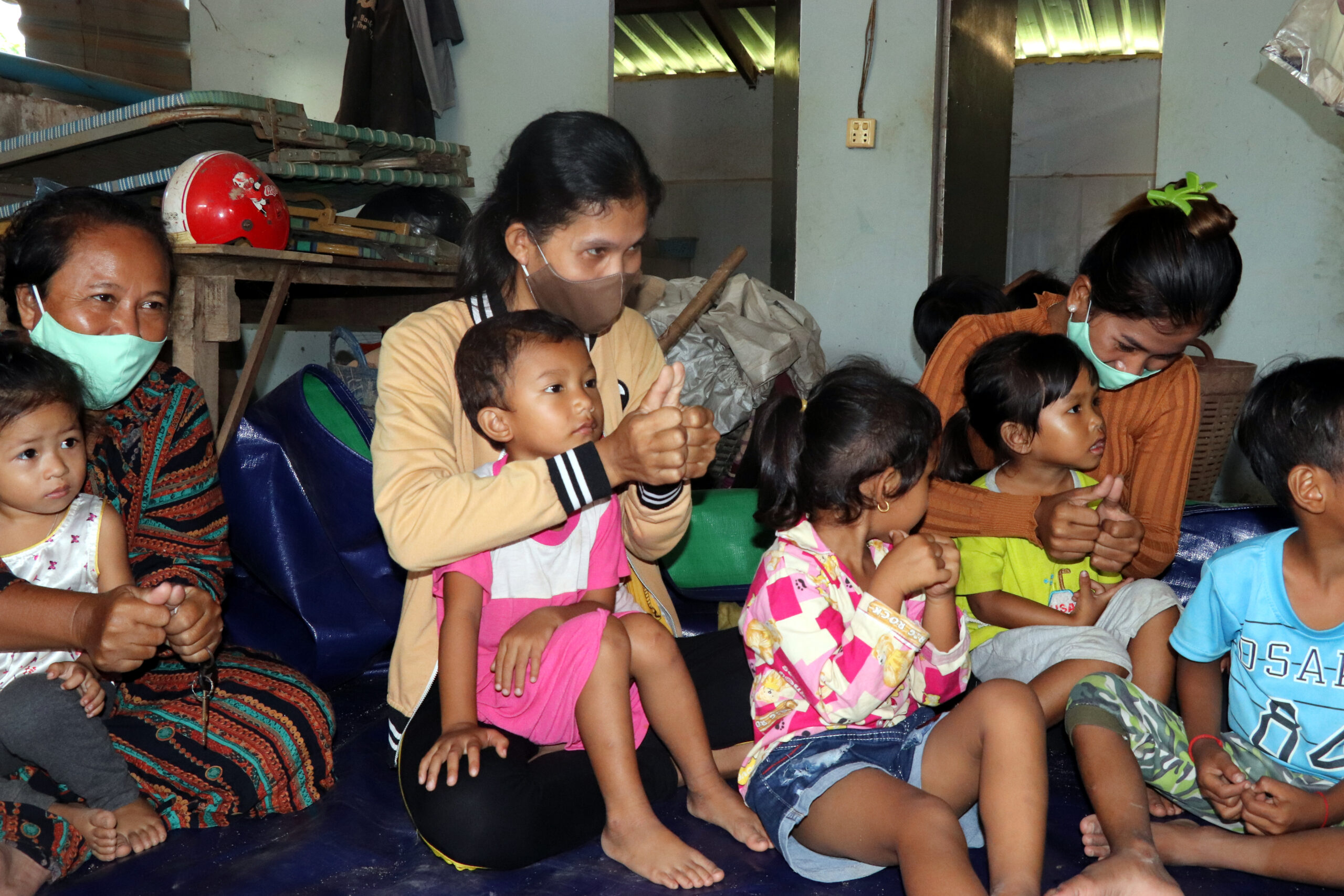As Sophea navigates the crowded aisles of her local market in Siem Reap, browsing the stalls of fresh produce, she counts out the brightly coloured vegetables to Houng, her one-year-old son she carries on her hip.
“One … two … three red peppers.”
Finding opportunities in daily life to practice counting with her child is something Sophea picked up during her participation in a recent preschool programme where the mother of two learned parenting skills that help her continue her son’s early education even as schools across the country remain closed.
“[The preschool] has helped me to be a good mother, and is helping my son to be a good kid, a good student and a good friend,” she said.
With schools shut across the country and education going online, authorities and non-governmental partners are focusing on the home as a crucial point of contact for early childhood education. Even before the pandemic interrupted schooling in Cambodia, leaders from both the state and non-governmental worlds were turning to these family-centered preschool programmes as a critical foundation for lifelong learning.
Now, as children of all ages are kept out of class, a growing network of programming could provide the necessary support to mitigate the negative educational and social impacts of more than a year out of the classroom.
Jamie Amelio, founder and CEO of the international education development group Caring for Cambodia (CFC), said the more holistic, family-oriented approach will be vital beyond the immediate term.
“When it comes to parenting in early childhood education, it is just as important as getting the kids to show up,” she said. “It really is about building an entire community and changing ideas about what education can look like.”
With a strategy of ongoing communication at the core of the group’s early childhood education work, CFC’s preschool programme has brought parents into classrooms with their children twice a month to play games, work on appropriate communication and learn about nutrition and hygiene. With schools shuts, these classroom meetings aren’t currently taking place, but the progress made prior to shutdowns and the group’s ongoing support continue to impact students and families alike.
“During these tough times there is continued communication, and we are reaching out to those families and checking up on them,” Amelio said.
For Sophea, the skills she gained in CFC’s preschool programme have proven vital during shutdowns.
“What I apply from the meetings is at home I sing the song with my kid and read stories with him,” she said. “During the Covid I also teach him about hygiene and I explain to him often that he needs the hand washing.”
Sokeurn, a CFC preschool teacher with 12 years experience in early childhood education, has seen firsthand the ways early learning programmes create more attentive and engaged parents – something she believes is particularly important as the stress of Covid seeps into daily life.
“The attitude of the parents that have been enrolled in the preschool programme and the ones that haven’t is different,” she explained. “They use the soft words, they understand how to explain [things] to the kid, how to educate the kid more than the other [parents].”

For Prok Kosal, director of the Early Childhood Education Department for the Ministry of Education Youth & Sport (MoEYS), the pandemic has only emphasised the vital role that parents play in children’s education.
“In Cambodia, we always say the parent is the first teacher for the child,” he told the Globe. “So the parent has to play an important role so they can teach them at home and support them at home, especially during the Covid-19 pandemic.”
In order to equip parents with the tools to prepare the next generation for primary education, the early childhood portion of the government’s Education Strategic Plan 2019-2023 was designed to bring caregivers into classrooms and strengthen community relationships through ongoing monitoring and stakeholder conversations.
“The parents and the preschool have to work together, they have to communicate and follow up,” he said. “When the children are at home, the parents have to take responsibility, but the parent has to receive [education about] how to play the right way with the children at home.”
Cheng Sivheng, a 25-year-old teacher at international NGO Save the Children, has seen the impact of this type of family focused early childhood education and how it can create healthier households that support young learners in times of uncertainty like during the pandemic.
We have seen [more] engagement from the fathers. They don’t use violence like before, shouting and hitting the children. Instead they calm down and communicate
“We have noticed a number of parents have changed their behaviour, they spend more time with their children,” she said. “We believe when parents change their behaviour [to be] better for their children, the children will feel more secure both physically and mentally, and this will enable them to learn.”
Using a similar strategy to CFC of parent training sessions, as well as house calls and ongoing communication, Save the Children’s RAISE project works with children from birth until age three and brings together caregivers, educators and local authorities to reorganise education for young children in Kampong Cham province around a family-centered approach.
Giving parents the knowledge and skills to strengthen the bonds in their homes is another goal of the project that Sivheng believes has helped some of her students’ families handle the pandemic in a more positive way.
“We have seen [more] engagement from the fathers. They tend to help their wives and show more care and support,” she concluded. “They don’t use violence like before, shouting and hitting the children. Instead they calm down and communicate with their children.”
In a country where domestic violence continues to mar family relationships – according to a 2020 pre-Covid UNICEF report, 60% of Cambodian men and women reported experiencing some form of physical or verbal abuse during childhood – these issues are only aggravated during times of crisis.
However, parent training programmes that teach positive reinforcement and appropriate communication could provide tools for mediating these family conflicts.
For 28-year-old Sophea, who dropped out of school after 9th grade, CFC’s preschool programme has done more than teach her how to engage and educate her children during school closures. It has changed her attitudes about parenting, discipline and how she can be a better role model for her children.
“Before I came to the preschool I could feel more angry,” said the mother of two. “Sometimes I would shout with my kid, but now I don’t want to do this anymore. Now I have the knowledge to help my child to be a good communicator.”
Sin Channa, a 30-year-old mother of two from Kampong Cham province, has seen the dynamics in her household change through her participation in Save the Children’s RAISE project, and the benefits have only become more apparent during the pandemic.
“My husband pays close attention to our child and he also helps me with the house work and other urgent tasks,” she said. “Before I attended the programme he didn’t really know what to do and after I attended I shared [information] with him so he understands what our children need. He has changed a lot … and it helps a lot during Covid.”
Channa believes the healthier relationship with her husband that she nurtures thanks to her time with the RAISE project will not only help her child on his educational journey, but allow her family to better handle difficult and unforeseen situations.
“Our relationship became better after we learned the importance [of positive communication] for our children’s growth,” Channa said. “We have less verbal conflicts. In the past we would argue with each other and our children would cry … But from what we have learned, I just feel happiness in our family.”

Family-focused early childhood education continues to pay dividends reducing the impact of this unprecedented disruption to Cambodia’s school system, as parents have a clearer understanding of the importance of these early years and how to support their children’s educational and emotional growth.
For Houng Pousou, whose 12-year-old daughter went through CFC’s preschool programme, the skills she learned allow her to continue helping her child learn outside the classroom.
“I am able to keep my kid at home because I got the knowledge from the [preschool] class,” she explained. “When the kid can go to school and play with friends and learn it is ok, but now [during Covid] we have to stay home and she is able to learn with me.”
While Amelio and her team are waiting for the Covid situation to ease and CFC schools to open in order to gather hard data about the impacts of the pandemic on students and parents, she remains optimistic about the role of early childhood education training during shutdowns.
“I think that all of these things that they have been working on before continued during these tough times,” Amelio said. “From a sense of community input and support there was a lot of that so I feel like there was continued learning, among the little kids even more so.”
While the benefits of these types of parent training programmes are taking centre stage during the current crisis, preschool programmes have much broader implications in Cambodia. For Amelio, it is these big picture, societal changes that represent the true potential of early childhood education.
“Cambodia has been trying to rebuild itself for years, it takes a long time. But I know 100% that these programmes are changing the ways they think about education.”
This article has been written in partnership with Caring for Cambodia, as a part of an ongoing series exploring education in Cambodia and the steps being made to bring hope to future generations. Find out more here.



